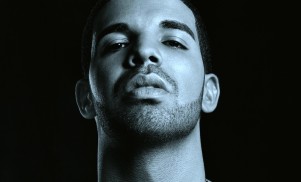For the first time, a British grime label has signed a hip-hop megastar.
It’s fitting that Drake announced his signing to Boy Better Know, the London label and crew responsible for some of grime’s biggest early hits (including Skepta’s ‘Doin’ It Again’ and group effort ‘Too Many Man’) on the same night as the Brits – an awards ceremony rightly maligned for its failure to recognise grime’s contribution to UK music over the past decade.
It was easy to see which event was the bigger deal for Drake, too. Rather than stick around at the O2 Arena after performing with Rihanna, he took himself off to the much more modest surroundings of Shoreditch’s Village Underground where, alongside BBK co-founder Skepta, he joined Section Boyz on stage as a surprise guest. For those who paid £10 for a ticket to see Section Boyz – one of 2015’s breakout acts, thanks to singles like ‘Lock Arf’ and ‘Trapping Ain’t Dead’ – it would have been a memorable night, but the ramifications for both British music and the wider industry should stretch far beyond the brick walls of Village Underground.
Grime has often found itself unfairly positioned as the UK’s answer to hip-hop, a condescending view reinforced by the mainstream media, with journalists still referring to grime artists as ‘rappers’; at times, it’s felt like the grime scene believed that too. But that was before last year’s DIY grime resurgence. In 2016, after huge UK chart success and a rising profile in the US, Boy Better Know doesn’t strictly need Drake – but they can welcome him into the stable to no doubt scale even greater, more global heights of fame.
British artists have always been under pressure to ‘break’ the US at all costs, even if that means changing their image or even their musical output. Drake’s alignment with Boy Better Know is a sign of how that relationship – albeit at a scene-specific level – has not only changed, but been reversed. Some people have accused Drake of jumping on the grime bandwagon – mocking him adopting London slang (“Top boy getting waved with the man dem”) and getting inked with the BBK logo – but he’s the first hip-hop artist to not only publicly back the music, but to try and become a part of it – and on grime’s terms, too. Drake isn’t trying to turn Skepta into a hip-hop artist, nor is Skepta trying to make Drake a grime MC. This feels like a meeting of minds, a mutual respect – an understanding that neither needs to appropriate or validate anything. As Drake put it to Fader last year, “I was a Skepta fan, but after meeting Skepta…we were brothers immediately.”
“Drake’s signing feels like a huge ‘fuck you’ to the music industry”
That said, a multi-million-selling rapper like Drake “signing” to Boy Better Know has to be taken with a pinch of salt. Though it functions as a fiercely independent record label, BBK is built on its crew foundations – Skepta and JME are brothers, Wiley, Frisco, Jammer, Shorty and DJ Maximum have been friends for years. They’ve made BBK a success together. Much of BBK’s output has come from the crew’s individual members, with each release backed by the others through social media, creating a grassroots promotional cycle that doesn’t require the might of a major label. Skepta, Jammer and Frisco’s Instagram accounts are littered with posts shouting out new music from the rest of the BBK camp, regardless of whether those tracks, mixes or freestyles are available to buy – you won’t find many listed on Discogs.
It’s this brotherhood that sets Boy Better Know apart. They may not have the budget or the infrastructure for a massive album rollout, but like many US rap labels, such as Gucci’s 1017 or French Montana’s Coke Boys, they bring something money can’t buy – a sense of belonging and, more importantly, self-worth. Drake’s affiliation may therefore be more symbolic than musical for the time being – particularly as he’s still technically signed to Cash Money. The release of If You’re Reading This It’s Too Late and What A Time To Be Alive as albums rather than mixtapes has led to speculation that Drizzy is trying to fulfill his contract with Birdman as quickly as possible; Views From The 6, set to drop in April, could be the final album he owes to the label.
Drake’s signing also feels like a huge ‘fuck you’ to the music industry. Five years ago, if you could have predicted grime’s mainstream resurgence, you might have imagined the scene’s biggest MCs being cherry-picked for feature appearances on a Drake album. They’d have been treated like superstars, flown to far-off recording studios to lay down verses over beats they had no input in selecting, dealing in subject matter already decided for them. They would have been told the opportunity would be great for their careers, or that this was “just the start”, only to find that this is an industry that specialises in false promises.
It’s this cycle that has spurred on grime artists to go it alone, to voice their discontent, to loudly believe in themselves, to get political, to rebel – and ultimately, make the best music of their careers. In the case of Boy Better Know and Skepta, the results have been emphatic. Not only have they empowered themselves, they’ve empowered the culture with it – and it’s no wonder artists like Drake want to be a part of that movement. It’s exciting and, perhaps more poignantly for a genre that prides itself on lived narratives, very real.
So on the night that the Brits ignored grime artists for another year, Boy Better Know and Drake were busy making their own history down the road – without anybody’s help. More power to them.




























